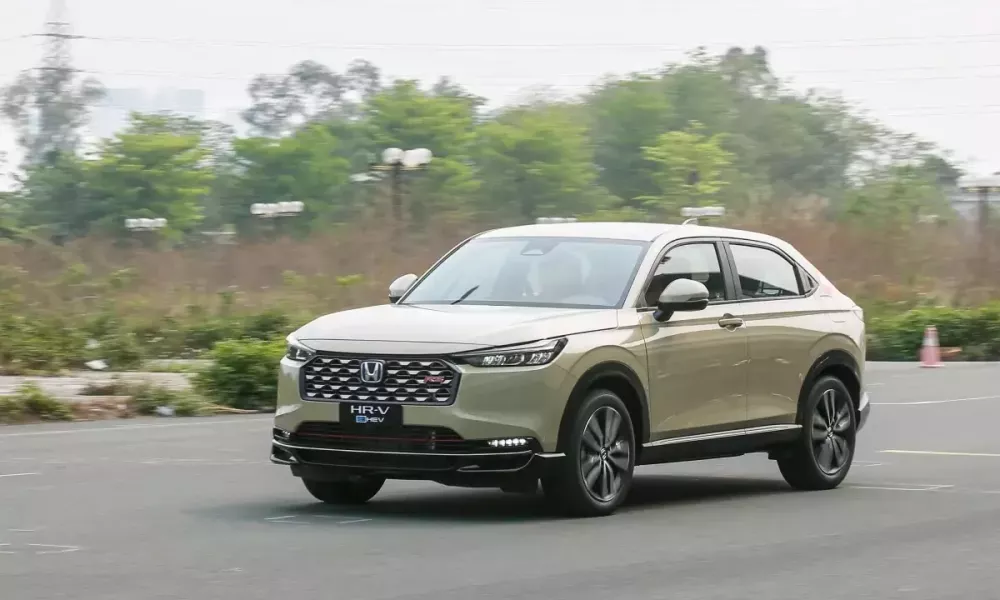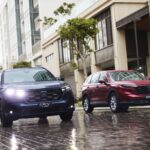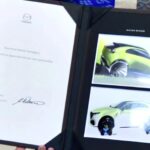On the morning of April 3, 2025, the People’s Representative Newspaper organized a seminar on the topic “Special consumption tax policy for hybrid and pickup trucks.” The seminar attracted the participation of National Assembly deputies, experts, managers, enterprises, and many related units and organizations to discuss focal issues in the tax policy for these two vehicle lines as the Law on Special Consumption Tax is being amended.
In his opening remarks, Deputy Editor-in-Chief of the People’s Representative Newspaper, Le Thanh Kim, emphasized the importance of openly and profoundly discussing the special consumption tax policy, as it is not only a tool for the state to regulate consumption but also significantly impacts the production and business of enterprises, the consumption needs of the people, and the sustainable development of the economy.
The draft Law on Special Consumption Tax (amended) has been discussed by the National Assembly for the first time at the October 2024 meeting and was just discussed at the Conference of NA Deputies on March 25-26, 2025. Up to now, the draft Law has made important changes regarding hybrid and double-cab pickup trucks after receiving comments.
Accordingly, the draft Law stipulates that hybrid vehicles, which use both gasoline and electric power, will be subject to a special consumption tax of 70% of the tax rate for vehicles using conventional internal combustion engines. This not only reduces the tax burden on consumers but also promotes the use of environmentally friendly vehicles, contributing to the goal of protecting community health and reducing negative impacts on the environment.
Thus, the draft Law has removed the distinction between plug-in and plug-in hybrid vehicles in previous drafts, replacing it with a common application method that is more favorable for businesses and consumers. The government will continue to research and elaborate regulations on applying taxes to hybrid vehicles in the future.
Regarding double-cab pickup trucks, the draft has also made important adjustments to harmonize the interests of related parties. The law drafting agency is considering a roadmap for applying special consumption tax to this type of vehicle reasonably, ensuring time for enterprises to adjust their production and business plans while not causing difficulties for the people, especially rural households and enterprises, the main users of double-cab pickup trucks.
At the seminar, the speakers said that hybrid cars, which combine gasoline and electric motors, not only save fuel but also reduce CO2 emissions. Research by Hanoi University of Technology shows that hybrid vehicles can save 30-50% of fuel consumption compared to conventional internal combustion engine vehicles. According to the Vietnam Automobile Manufacturers Association (VAMA), hybrid vehicles produced between 2026 and 2030 can contribute to reducing more than 2.6 million tons of CO2 emissions, helping to save the budget to offset emissions equivalent to 333 billion VND in carbon credits. Therefore, tax incentives for hybrid vehicles are necessary to guide consumers towards this type of vehicle, thereby reducing environmental pollution, improving the quality of life for the people, and contributing to Vietnam’s Net Zero commitment.
Analyzing the preferential tax rate for hybrid vehicles, a representative of KPMG Limited Company, said that reducing the special consumption tax by 30% for plug-in hybrid electric vehicles (HEV) and 50% for plug-in hybrid electric vehicles (PHEV) as proposed by VAMA could lead to a short-term reduction in state budget revenue (about 5,000 billion VND per year) but is an acceptable cost compared to the long-term benefits that this policy brings. According to KPMG Vietnam’s research, tax incentives will save up to 26,000 billion VND in fuel costs and 28,000 billion VND in crude oil import costs throughout the life of each car. This not only reduces pressure on the state budget but also contributes to improving Vietnam’s trade balance.
Regarding double-cab pickup trucks, many speakers said that this type of vehicle is mainly used outside urban areas, with the primary function of carrying goods. Many households and many units use them for small and medium-sized business convenience and simplicity in transportation. According to KPMG, more than 70% of double-cab pickup truck consumers in Vietnam are in mountainous areas and provinces outside Hanoi and Ho Chi Minh City. Notably, 64% are individual customers, including farmers, engineers, and self-employed individuals. This group buys vehicles for transportation and small and medium-sized business purposes. The remaining 36% are agencies and enterprises such as the Ministry of Public Security, the Ministry of National Defense, the Ministry of Health, the Ministry of Agriculture and Environment, and Viettel Group, which use these vehicles to perform national tasks and specialized activities.
According to the speakers, a sudden and significant increase in the tax rate will significantly impact small businesses, households, and people in rural, mountainous, remote, and remote areas, the main users of double-cab pickup trucks. A 3-year roadmap with a reasonable increase and application after 1 year from the law takes effect will be a harmonious solution, ensuring budget revenue, protecting consumers’ interests, and ensuring the sustainable development of the domestic automobile industry.
Sharing at the seminar, the Deputy Editor-in-Chief of the People’s Representative Newspaper affirmed that this is one of the essential forums, helping National Assembly deputies and competent authorities listen and receive comments, analysis, and evaluations from experts, enterprises, and related organizations. Comments at the seminar will be valuable material to finalize the draft Law on Special Consumption Tax (amended) and submit it to the National Assembly for approval at the May 2025 meeting.
The All-New Mazda Compact SUV: Unveiling Soon in Southeast Asia
In an exciting development, Mazda has unveiled its plans to introduce a new range of vehicles to the Southeast Asian market over the next three years. This ambitious strategy underscores the brand’s commitment to expanding its presence and offering diverse options to customers in the region. With a focus on innovation and meeting the evolving needs of drivers, Mazda is poised to make a significant impact in the dynamic and rapidly growing Southeast Asian automotive landscape.














































